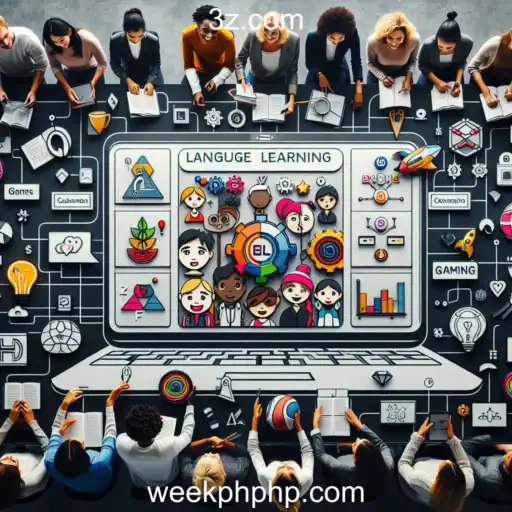
Exploring the impact of gamification on online learning platforms and the growing trend of integrating games into education.
In recent years, the concept of gamification has taken the education sector by storm, transforming the way educational content is delivered and consumed online. With platforms like 'weekph' emerging as a key player in integrating game mechanics into learning environments, the potential to enhance engagement and educational outcomes has garnered significant attention from educators and learners alike. Weekph, an innovative website focusing on English language games, is at the forefront of this movement, offering diverse and interactive ways to learn.
The essence of gamification lies in applying game-design elements in non-game contexts, and this approach has proven to be incredibly effective in the realm of online learning. By embedding elements such as point scoring, competitive rankings, and motivational badges, educational platforms are not only capturing students' interest but also fostering a deeper, more immersive learning experience. For instance, learners using websites like weekph can engage in language learning activities that feel more like play rather than traditional study, making the process enjoyable and less strenuous.
The rise of gamification in online education is fueled by several factors, including advances in technology, changing learner preferences, and a growing body of research supporting the efficacy of game-based learning. These dynamics are reshaping educational practices globally, prompting institutions to rethink their strategies to remain competitive and relevant. As the demand for quality online education continues to surge, the integration of gamification is poised to play a pivotal role in redefining curricula and teaching approaches.
However, the trend is not without its skeptics. Critics argue that gamification could potentially dilute the academic rigor of traditional education by prioritizing entertainment over substance. Despite these concerns, the overwhelming consensus points towards the benefits outweighing the potential downsides. With platforms like weekph demonstrating the positive impact of gamifyed learning environments, the education sector is witnessing a dynamic shift towards more interactive, learner-centric models.
In conclusion, as more educational institutions and platforms adopt gamification, the boundaries between learning and play continue to blur, creating opportunities for innovation and personalized education. This shift not only reflects changing societal norms but also highlights the need for educators to adapt and integrate engaging methodologies into their teaching practices. As technologies evolve and new learning paradigms are established, the role of gamification in education will likely expand, paving the way for an exciting future in online learning.




